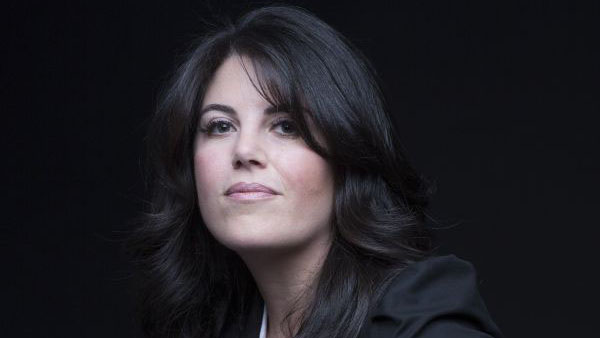Monica Lewinsky calls herself “Patient Zero” of the cyberbullying crisis.
The Internet was just becoming widespread in September 1998 when Lewinsky became the center of a presidential scandal. Media outlets nationwide picked up the story of her affair with President Bill Clinton, and she instantly became the victim of countless online comments, with her photo plastered across the Internet.
Lewinsky will share her story, which in the age of social media has become a story many people can relate to, at the IMU Main Lounge at 7:30 p.m. Her lecture, titled “The Price of Shame,” will discuss cyberbullying and how to promote compassion on the Internet.
At the University of Iowa, officials know that cyberbullying is an issue. The dean of students addresses cases that violate the Code of Student Life with punishment for the perpetrators and offers resources to students who are victimized by cyberbullying.
“I would say it’s definitely a very real thing students experience; it’s something that we take seriously,” said Nikki Hodous, assistant director for Student Care and Outreach said. “I think anytime someone’s safety is in jeopardy physically or emotionally, that’s something that is really important, providing support to the people impacted.”
A 2014 article published in SAGE Journals surveyed 613 college students and found 19 percent of them had experienced cyberbullying. The same article also said the phenomenon has not been studied in the college population nearly as much as in adolescent and pre-adolescent populations.
Last fall, UISG led a campaign against cyberbullying after hate speech appeared on the social-media site Yik Yak, on which users could post anonymously. UISG President Jacob Simpson said many comments were directed toward international students and Asian-American students.
RELATED: Hate speech gets a ‘no’
The current UISG administration does not have any specific campaigns surrounding cyberbullying at this time.
“The Office of the Dean of Students and UISG are very committed to making sure students feel welcome on campus, whether it be with their physical presence walking down the sidewalk or if a student has a social-media account,” Simpson said. “We need to have this on the forefront of the conversation to make sure that people’s dignity and selfhood are not at stake because of the bad decisions and bad intentions of another person.”
Lewinsky discusses the consequences of cyberbullying in her Ted Talk, also titled “The Price of Shame.” Though there was no name for the phenomenon in 1998, she said, the public humiliation nearly drove her to take her own life.
Her Ted Talk is part of what inspired the UI Lecture Committee to bring Lewinsky to the university.
“She experienced cyberbullying as it was coming of age,” said Ben Hyland, the chair of the committee. “She was one of the first people to deal with that, so the committee thought it was extremely relevant to bring her to campus.”
Hyland said that in this generation, her message applies to college campuses around the country.
“I think anecdotal evidence shows [cyberbullying] is something that students haven’t really had to deal with in the past,” Hyland said.



